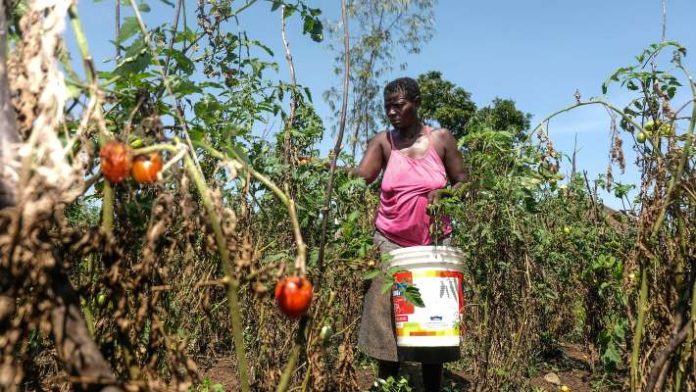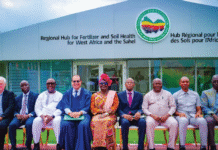COVID-19 has not been as widespread in Africa as in many other countries, but it has felt the economic impact of the pandemic on a wide scale. For example, many of Africa’s trading partners experienced lockdowns that prevented international trade.
Africans have also faced job loss and rising costs for food as demand outweighs supply across the continent. In response to these overwhelming challenges, many individuals have turned to agriculture to provide a livelihood buffer during COVID-19.
Challenges for African Farmers
The African continent contains 60% of the world’s arable land, but reliance on supportive weather patterns and political challenges means much of the land’s potential remains untapped. For example, the recent locust problem in East Africa meant some farmers lost everything.
International trade in the African agriculture industry typically exports about $35 billion per year. However, around 65% of Africans are subsistence farmers. Many of these families live below the poverty line and are hit especially hard by natural or socioeconomic changes, such as droughts or political conflict.
Before the pandemic, around 650-670 million people in Africa were already facing food insecurity. According to an analysis by McKinsey and Co., about 400-460 million Africans are facing a loss of income. As many as 150 million Africans could lose their jobs due to the pandemic.
Many Africans are turning to agriculture to support themselves and their families in response to these challenges. COVID-19 is drastically changing the African agricultural landscape, affecting trade within the continent and influencing millions of people to find innovative ways to make ends meet.
Changing Agricultural Trends
Since the beginning of the pandemic, the number of African households that rely on farming for their livelihood has increased across the continent. According to a study by the World Bank, 76% of Nigerian households were raising crops or livestock before the pandemic. However, this number has increased to 84% over the last two years.
Participation in agriculture is measured by comparing the number of Africans entering the industry with those exiting. According to the same survey, more urban than rural households have started farming during the pandemic, demonstrating the growing need for city dwellers to find additional resources for their livelihood.
Crop and livestock farming can be expensive, and reports show that rural areas are increasingly turning to crops as the most affordable option. However, city dwellers are understandably choosing livestock as a better fit for their resources.
Even before the pandemic started to interfere with trade and farmers’ access to agricultural resources, many Africans were concerned about how the changing climate impacted the future of raising crops on their land. The solutions Africans are finding during the pandemic may equip them for continued agricultural success in the future.
The Future of African Agriculture
Although COVID-19 has negatively impacted millions of African lives, it has also brought clarity to the future of the continent’s agriculture. For one thing, it has demonstrated the essential role farming will play in the future economic growth of African nations. Investments in farmers will benefit everyone on the continent.
The pandemic has also emphasized the current weaknesses in Africa’s agricultural sector. Until the pandemic, dependence on foreign farm machinery and fertilizer wasn’t a huge problem. Now, reduced supply, rising costs and trade restrictions are hurting farmers in many African nations, slowing production and reducing their resources for the coming season.
Since the economic crash of 2008, African governments have been coordinating with farmers in an attempt to ease the financial burden of farming and invest in the future of agriculture for their nations. Although these programs have helped farmers survive times of crisis, government inputs are not ultimately reaping long-term benefits equal to the expense they’ve invested.
Instead of scaling input efforts up, a focus on agroecology is needed to support farmers and develop sustainable practices that will lead to healthy yields for years to come. Governments can best help the increasing number of African farmers by promoting natural fertilizers, spreading local knowledge through digital devices and building strong farming communities.
Resilience in Response to Challenge
COVID-19 has been incredibly challenging for high-poverty and middle-class populations across the African continent. Reduced resources, job loss and trade restrictions have wreaked havoc on the economic health of the continent, impacting millions of families.
An increasingly large number of Africans are turning to agriculture as a livelihood buffer in response to the pandemic and rising food insecurity. During these times of crisis, small-scale farmers are demonstrating resilience and courage by feeding their families while also investing in the economic future of their nations.
Bio: Jane is an agriculture and environmental journalist and the founder and editor-in-chief of Environment.co, where she covers sustainability and eco-friendly living.









